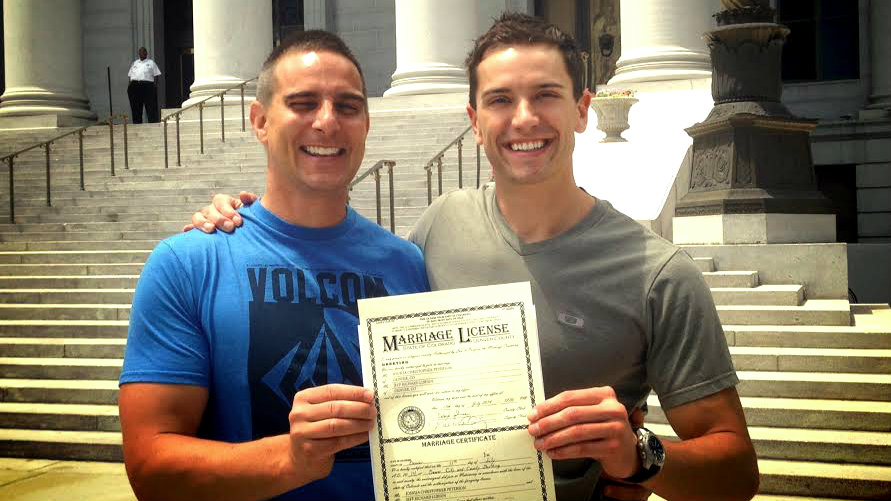
Three Colorado counties are issuing marriage licenses to gay couples, and five more have requested guidance from the state Supreme Court on whether to follow suit. That request is among the latest developments in an eventful few weeks for the future of Colorado's ban on same-sex marriages.
A state judge in Adams County recently ruled that Amendment 43, the 2006 measure to define marriage as between one man and one woman, is unconstitutional. Attorney General John Suthers is appealing that decision, but in an interview this week, he acknowledged the law is likely to fall before long.
"I’d say I understand, full well, the emotion surrounding this issue. And I also understand and appreciate the sense of inevitability that Colorado will have same-sex marriage either politically or judicially. That certainly appears to be the case," Suthers said.
A final, full resolution will likely come from judges before long. But the rapid developments of the past few weeks have significantly changed the landscape for gay marriage in Colorado, and those changes mean different things to many people in the state.
CPR's "Colorado Matters" talked with people -- from a gay couple to the Catholic archbishop of Colorado -- to get their perspectives on the issue.
"Excited," but still waiting
Josh Peterson and Jeff Lubsen got married in Denver last week, after the clerk there started issuing licenses to same-sex couples. Lubsen has decided to take Petersen's last name, but the couple is struggling to get that done legally, showing how many things have to change as Colorado moves toward approving gay marriages.
So I said, let’s walk over to the Social Security Administration building. So we headed over there and present the marriage certificate and the clerk’s starting to enter our information. And then he says well excuse me, and he had to get up, goes back and gets a supervisor. Supervisor comes out, looks at the record, goes back and gets another supervisor. They all kind of come out and they were very kind, but they said, this is the first time we’ve actually tried to do a name change with somebody with a marriage license of same-sex in Colorado. So they had to actually run this by their legal team, and they said this could take four to six weeks. So, we’re kind of just waiting in limbo right now, but I’m excited to soon be a Peterson.
Retired businessman C. Edward McVaney donated $100,000 to the campaign to pass Amendment 43, according to campaign finance records. The amendment, passed in 2006 with 55 percent of the vote, and made same-sex marriage illegal in Colorado.









